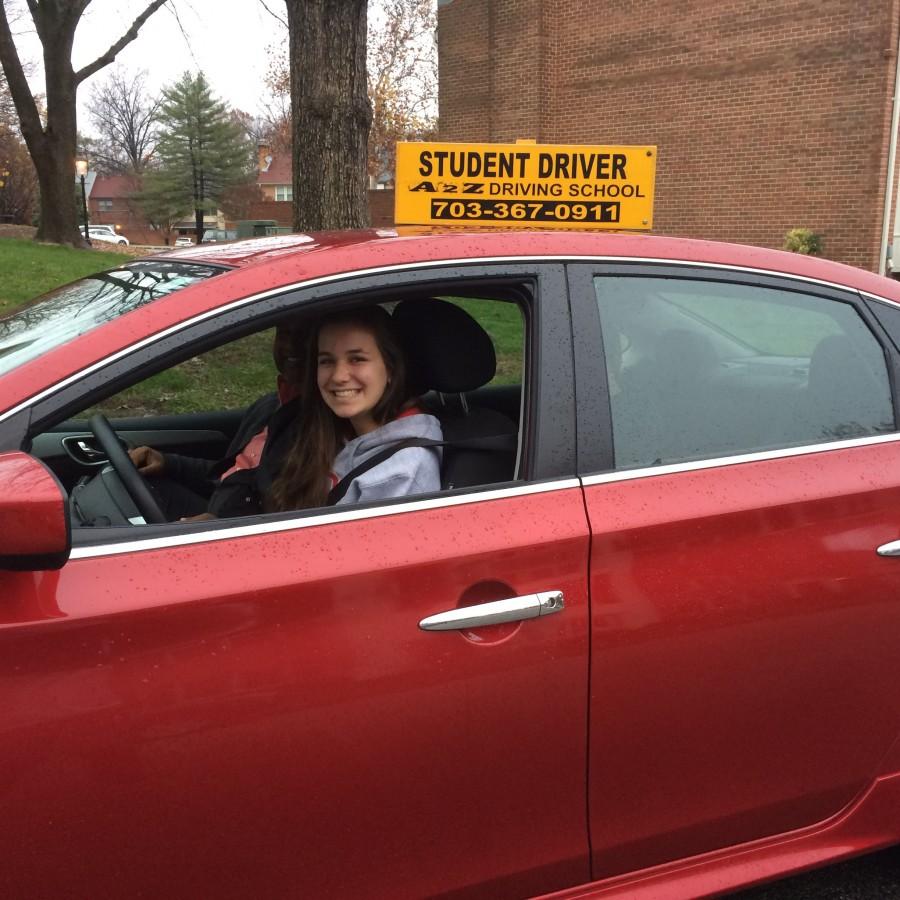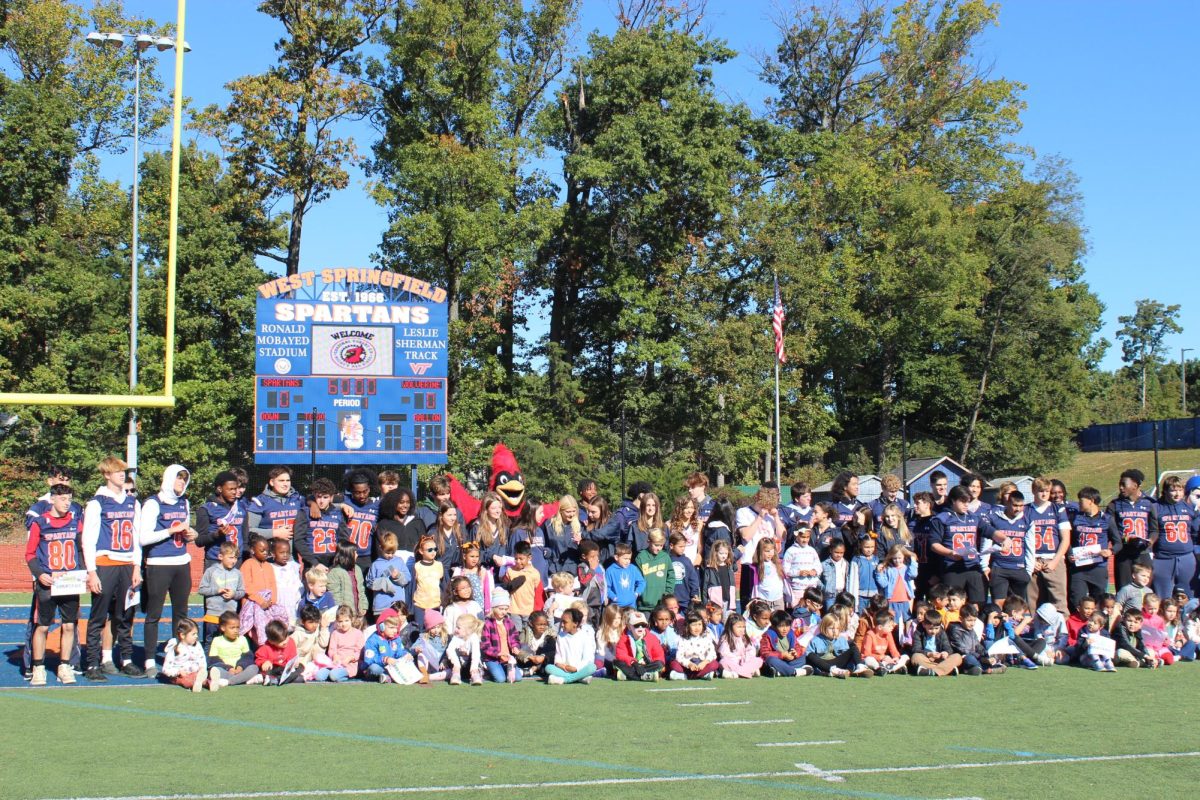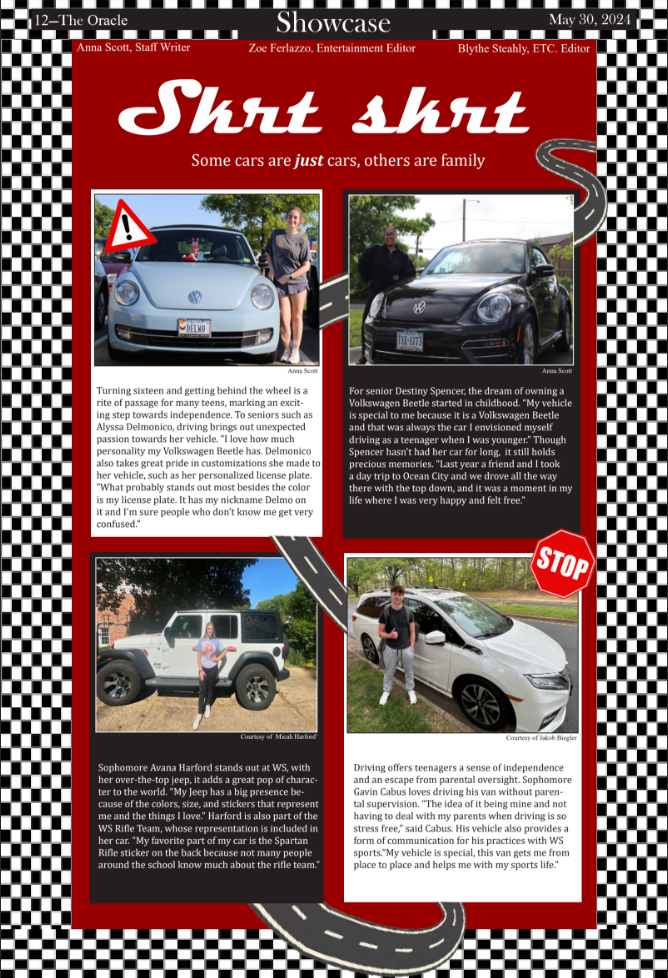What to know about BTW
Photo courtesy of Meg Wilder
Junior Molly Croushore takes behind the wheel through one of the areas private Behind-the- Wheel companies. Students have two options when it comes to taking behind the wheel: through the County or through a private company, both have their pros and cons.
December 16, 2015
Getting your license is a rite of passage into the realm of adulthood, but according to Driver’s Ed teachers it’s a rite that’s not so much earned as handed out by some Behind-the-Wheel instructors.
In Virginia, a student is eligible to get his or her permit at fifteen and a half. The process to get it is fairly simple: wait in line at the DMV, take a test, pass it and you’re done. Hang on to that permit for nine months, and you’re allowed to get your license.
But that’s where things get complicated.
To get his or her license, a student has to take Behind-the-Wheel, which requires seven days of driving practice with an instructor. In FCPS, when it comes to Behind-the-Wheel, students have two options: Take it through the County, or take it through a private company.
It may seem like it doesn’t matter which option you choose (either way you still end up with your license, right?) but according to Driver’s Ed teacher and FCPS Behind-the-Wheel instructor Brian Puhlick, it makes all the difference.
Private companies such as A-Z and All American driving schools are notorious for their lax programs and curriculum centered around the instructors’ personal interests.
Some instructors have been known to have their students pick them up food at drive-throughs or grocery stores, while others have a reputation for being on their phones or texting while they’re supposed to be instructing. While these stories may just be rumors, it’s still disconcerting for both students and parents.
“Private companies are a joke,” said Puhlick. “They don’t go through the training that we go through. We don’t stop at McDonald’s; we have a solid curriculum.”
Amy Schiffer, also a Driver’s Ed teacher and FCPS Behind-the-Wheel instructor, agrees with Puhlick. In her opinion, the private companies are only in it for the money, while the FCPS instructors truly care that their students aren’t a danger to themselves or others on the road.
The FCPS Behind-the-Wheel curriculum involves taking students out onto a private range for practice, a privilege that is not shared by students taking it through private companies. According to Schiffer, statistics show that the students who take it through FCPS are less likely to get in crashes.
“I’m hearing horror stories about kids that have been given their license in one day through these companies,” said Schiffer. “That’s illegal.”
The good news, however, is that those extremes do not seem to be the norm. Senior Cat Haufe, for example, got her license through Aloha Driving Academy with no problems.
“[My instructor] was really professional,” said Haufe. “They expect you to know what you’re doing.”
Michael Quinn, a senior who also took Behind-the-Wheel from a private company, also reported that his instructor was professional.
“I took it from American Driving,” said Quinn. “They expected me to know how to drive safely. [My instructor] took it really seriously.”
Whether a student is taking Behind-the-Wheel through the county or through a private company, the ultimate decision is up to them and their parents. There are advantages and disadvantages to both options.
“The fact of the matter is that you’re putting your child’s life in that person’s hands,” said Puhlick. “You’ll have a better experience with [the county].”





